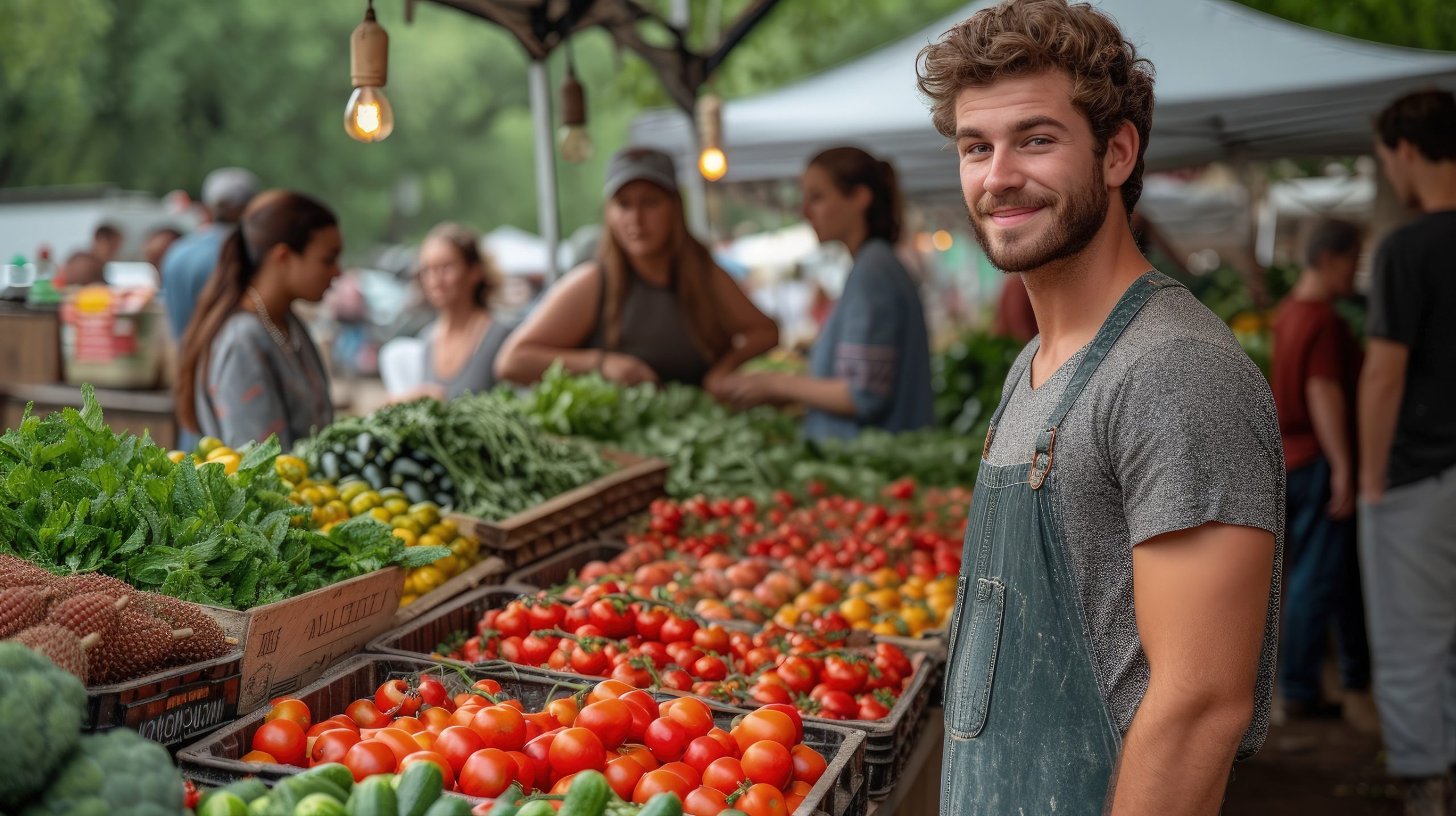Once known for loving convenience and tech, many millennials are now leading a quiet rebellion in the grocery world. Instead of heading straight to big-box stores and chain supermarkets, they’re choosing local butchers and farmers markets for their weekly essentials. This shift isn’t just about nostalgia or aesthetics—it’s about values, quality, and connection. As inflation rises and food systems get more complex, millennials are rethinking what it really means to shop smart. Here’s why more of them are swapping fluorescent aisles for handmade signs and fresh-cut meats.
1. They Want to Know Where Their Food Comes From
Millennials have questions—and they want real answers. Where was this chicken raised? What kind of farm grew these carrots? Large chain stores often offer vague sourcing info, but local butchers and farmers’ markets can give you the full story. This transparency builds trust and supports a growing desire for food that feels real. For a generation shaped by documentaries, health trends, and climate headlines, knowing the origin of your food matters more than ever.
2. Quality Over Quantity Is the New Grocery Standard

Image Source: 123rf.com
Forget the two-for-one frozen dinners. Millennials are increasingly prioritizing quality, even if it means buying less. At local butchers and farmers markets, the produce is often fresher, the meat is usually better cut, and the overall food experience feels more premium. Many young shoppers say they’d rather have one delicious, grass-fed steak than a bulk pack of mystery meat from a freezer aisle. The goal isn’t to fill the cart—it’s to feel good about what’s in it.
3. Supporting Small Businesses Feels Like a Win
With growing awareness around the impact of corporate consolidation, many millennials are putting their money where their values are. Shopping at local butchers and farmers’ markets keeps dollars in the community, supports small farms, and strengthens local economies. It’s not just about food—it’s about making a difference with everyday choices. In a world where everything feels mass-produced, choosing local feels personal, intentional, and empowering.
4. They’re Over-Processed, Over-Packaged Foods
Let’s be honest—chain supermarkets are full of heavily processed, plastic-wrapped products that aren’t always what they seem. Millennials, often labeled as health-conscious consumers, are gravitating toward whole ingredients and minimally packaged foods. At local butchers and farmers markets, you’re more likely to find glass jars, paper-wrapped meat, and fresh bulk items—no neon boxes required. The shift is about both health and sustainability: less junk, less waste, and more thoughtful shopping.
5. The Experience Feels More Human
Chain stores may offer efficiency, but local butchers and farmers’ markets offer community. Many millennials say they enjoy talking to the person who raised the eggs or butchered the meat. These small interactions build relationships and create a feeling of belonging that’s missing from self-checkout lines and loyalty apps. Shopping becomes less of a chore and more of a meaningful, even fun, part of the week. For a generation battling burnout, slowing down to connect can make a big difference.
6. It Encourages Seasonal and Sustainable Eating
Millennials are learning that shopping local often means shopping seasonal—and that’s a good thing. Seasonal food tends to be fresher, tastier, and more sustainable because it doesn’t need to be shipped across the country. Buying strawberries in summer or squash in fall helps reduce environmental impact while supporting farms that grow with the rhythm of the land. It’s one of the subtle benefits of sticking with local butchers and farmers markets, and it helps turn shopping into a lesson in seasonal living.
7. They Want to Spend With Purpose—Not Out of Habit
Many millennials are tired of feeling like passive consumers in a system that doesn’t reflect their values. Shopping local is one small way to reclaim control. Whether it’s choosing ethical meat, buying organic lettuce from a nearby farm, or chatting with the vendor about recipes, every transaction feels more intentional. That purpose-driven spending adds up—and it’s why local butchers and farmers markets are seeing a rise in younger, loyal customers. It’s not just about what’s cheaper. It’s about what feels right.
The Grocery Cart Is Becoming a Statement of Values
Millennials aren’t just changing how they shop—they’re changing why they shop. They’re using their grocery carts to express values like sustainability, community, wellness, and trust. And while big chains still dominate the landscape, the quiet shift toward local butchers and farmers’ markets shows that people are hungry for more than just food—they want meaning, too. If you’ve never stepped foot in a local market or chatted with your town’s butcher, now might be the time to try.
Do you shop at local markets or still stick with big-name stores? Share your shopping style in the comments—we’d love to know where your cart goes first!
Read More
Why Gen Z Is Drinking Less Than Any Generation Before—and What It Means for Bars
Why More People Are Skipping Alcohol—and What They’re Drinking Instead


